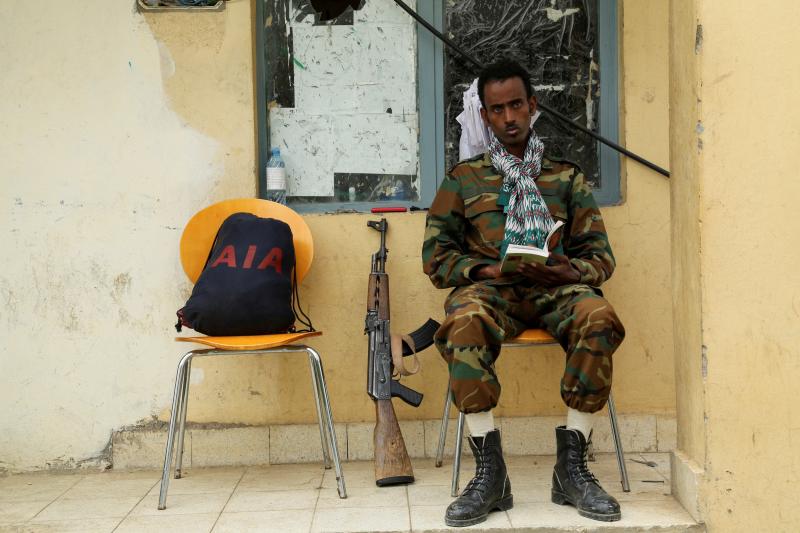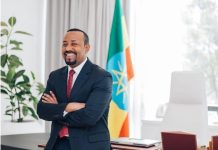Not long ago, Ethiopia was on a very different trajectory. In 2019, Abiy won the Nobel Peace Prize for ending a brutal 20-year border war with Eritrea and advancing a series of broad democratic reforms. In his Nobel acceptance speech, Abiy described his governing philosophy as Medemer, an Amharic word for “addition” that he said signified the combination of reconciliation, unity, and tolerance. Together with his early reform efforts, this vision for a diverse, inclusive, and united country gave millions of people hope that Ethiopia was on the path to a more stable future.
But over the last year, that hope has all but evaporated. I first spoke to Abiy about the brewing conflict in Tigray in November 2020. Tensions between his government and the TPLF, which dominated Ethiopia’s ruling coalition until 2018, had been mounting for months, culminating in a TPLF attack on Ethiopian military bases in the north of the country. In response, Abiy was preparing to launch a major military offensive against the Tigrayan capital of Mekelle. I urged him to reconsider and to take the path of negotiation and reconciliation instead. Abiy insisted to me that he was merely undertaking a law enforcement operation to apprehend a gang of criminals; the mission, he said, would be completed in a matter of weeks. I cautioned that generals on both sides of the American Civil War had made similar predictions in the spring of 1861. Far from having a swift and decisive outcome, however, that conflict dragged on for more than four years, becoming the deadliest and most destructive war in U.S. history. Despite my warnings—and the warnings of many leaders from Africa and around the world—Abiy pressed forward with a military campaign that has since caused mass displacement and human rights abuses.
In early 2021, President Joe Biden made the conflict and humanitarian emergency in Tigray one of his administration’s first foreign policy priorities, investing significant high-level attention and resources in trying to alleviate the crisis. Biden, Secretary of State Antony Blinken, and Special Envoy for the Horn of Africa Jeffrey Feltman have all worked with regional partners and European allies to push the warring parties toward negotiations. I have been proud to be a part of the administration’s diplomatic efforts, including by traveling to Addis Ababa to meet with Abiy and hand deliver a personal letter from Biden.
If Abiy and his opponents continue on their current path, they risk fracturing the Ethiopian state as we know it.
In March, I spent five hours with Abiy over two days in Addis Ababa. He conveyed a deep pride in Ethiopia’s history as the only African nation never colonized by a foreign power, and he demonstrated a strong sense of independence. It was clear to me that he saw himself as a determined reformer even as he struggled to balance competing internal political forces and external pressures from the international community. I urged him to take decisive measures to address the conflict and resolve humanitarian, security, and human rights issues before they spiraled any further out of control.
Abiy made a number of promises to me, some of which he initially kept. After acknowledging for the first time that Eritrean troops had entered the conflict to fight alongside Ethiopian forces, Abiy fulfilled his pledge to visit the Eritrean capital of Asmara to discuss the withdrawal of Eritrean troops with President Isais Afwerki. Abiy also publicly recognized that all parties to the conflict had committed human rights abuses and expressed the need for accountability. He allowed improvements in humanitarian access and permitted a joint UN-Ethiopian Human Rights Commission investigation to proceed. Within a few weeks, however, these glimmers of hope had faded, as Abiy reversed course and pressed forward with the war effort.
The results are as clear as they are devastating. A little more than a year into the brutal and tragic conflict, over 60,000 people have fled Ethiopia. I visited some of them in April at the Um Rakuba refugee camp in neighboring Sudan. Individually, their stories of forced relocation, rape, and other forms of ethnic violence were heartbreaking. Together, they add up to a generational tragedy.
Although the exact casualty figures are unknown, the human toll of the conflict has been terrible. In addition to the 60,000 people who have fled the country, more than two million have been internally displaced. Over half are women and girls, many of whom have faced appalling gender-based violence. The war has killed thousands, pushed at least 400,000 people into famine-like conditions, and left seven million people in need of urgent humanitarian assistance. All sides of the conflict have committed atrocities, according to international investigators.






